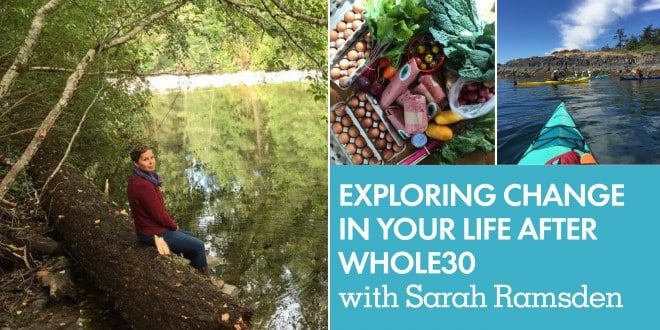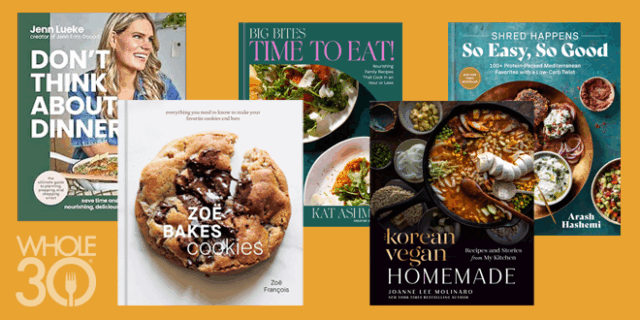by Sarah Ramsden, a personal coach who specializes in helping people navigate big life changes. This post is part of our ongoing series of posts related to life after your Whole30. If you’d like to submit a post for consideration, contact content@whole30.com.
A favorite non-scale victory for many Whole30’ers is increased confidence and a powerful sense of self-efficacy as a result of their Whole30 experience. This makes perfect sense; if you can exercise so much discipline over your diet for 30 days, what other habits, relationships, or aspects of health can you focus on with such effort and intention?
As your 30 days draw to an end, you may have in mind just one habit or aspect of your life that you’d like to focus on next, or perhaps you’re pondering making a few changes. Either way, Sarah’s perspective and five actionable steps will help you clarify your next steps in life after your Whole30.
Making Even More Changes Post-Whole30
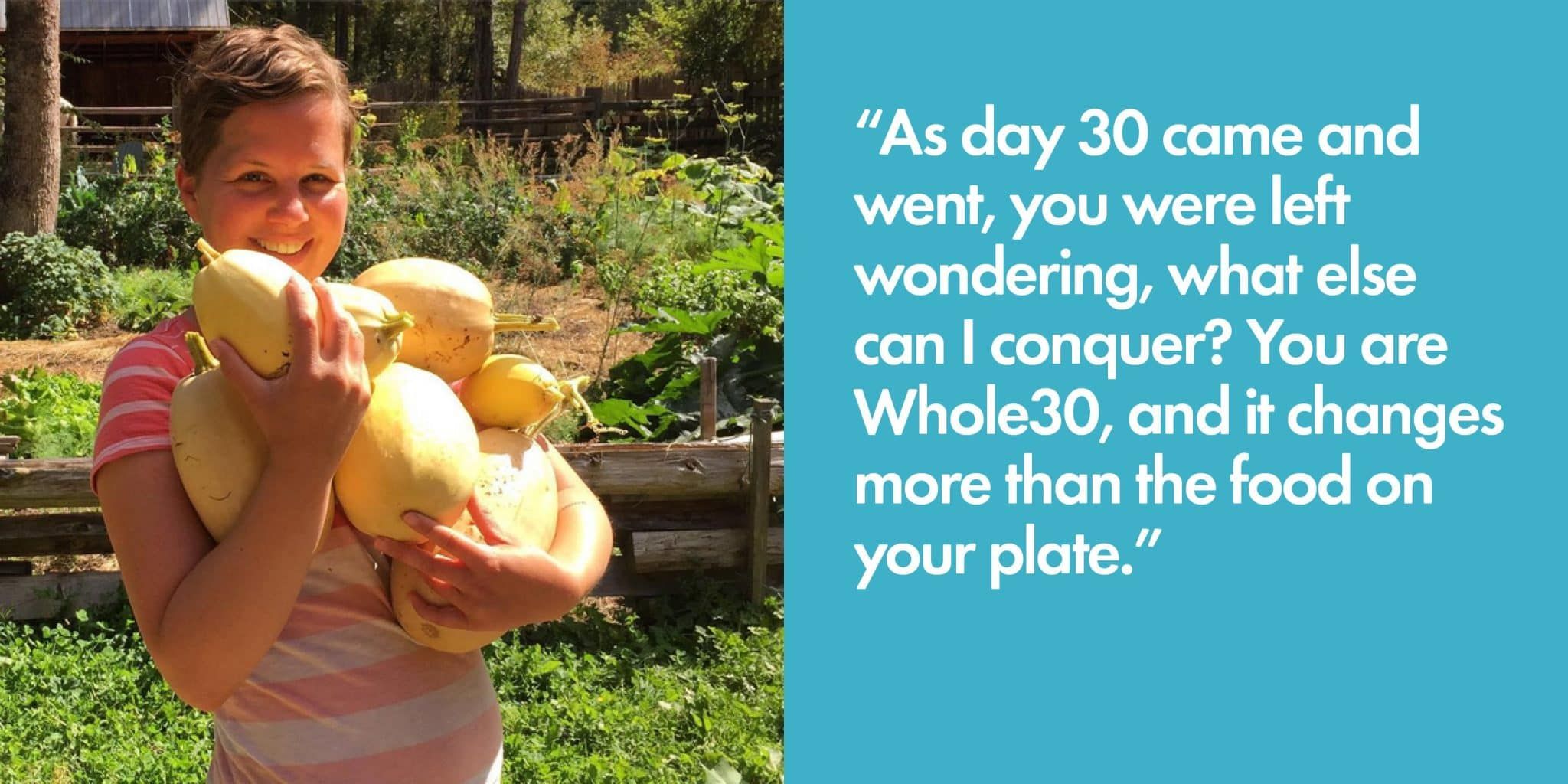
You started reading food labels, organized your kitchen, and somehow found the time to squeeze in some meal prep; all in the name of committing to the Whole30. You emptied your cupboards of your favorite chips, trashed the corn oil that sat by your stove, and made your fridge a home to more spinach, squash, peppers, collards, and sweet potato than it had ever seen before.
On Day 5 you successfully managed not to kill everyone around you (only just), on Day 11 you daydreamed about double chocolate cake, cheese, and beer (yes, all at once thank you very much), but by Day 16 you had turned a corner. Your energy was up, your cravings were down, and you were moving into that mythical Tiger Blood territory. As Day 30 came and went, you were left wondering, what else can I conquer?
You are Whole30, and it changes more than the food on your plate.
What happens when your Whole30 experience makes you want MORE from life?
The Whole30 is a door into a new life where you can think less about food and more about living – and living is so much more rewarding when you’re happier, have more self confidence, and are sleeping better. For the first time, it shows you how much control you have over your own health and the life choices. By improving the way you feel every single day, you have lifted the fog. Now, everything that’s important to you becomes so much clearer.
I have personal experience with this post-Whole30 clarity. After my first Whole30 I realized I used food as a friend when I was lonely, something to calm me down when I was anxious, and it gave me something to do when I was bored. When you improve your psychological relationship with food, you may realize something is missing in your life. The missing piece could be stronger connections with friends, spending more time outdoors, or taking time to slow down and be present.
The Whole30 made me realize that I have a choice. After experiencing the Whole30 as a nutritional reset, I realized I could do a reset on my whole life. I get to choose to follow the things that make me happy, to spend time with people who love and respect me, and to do work that is meaningful to me.
Five Strategies for Evaluating Life After Whole30
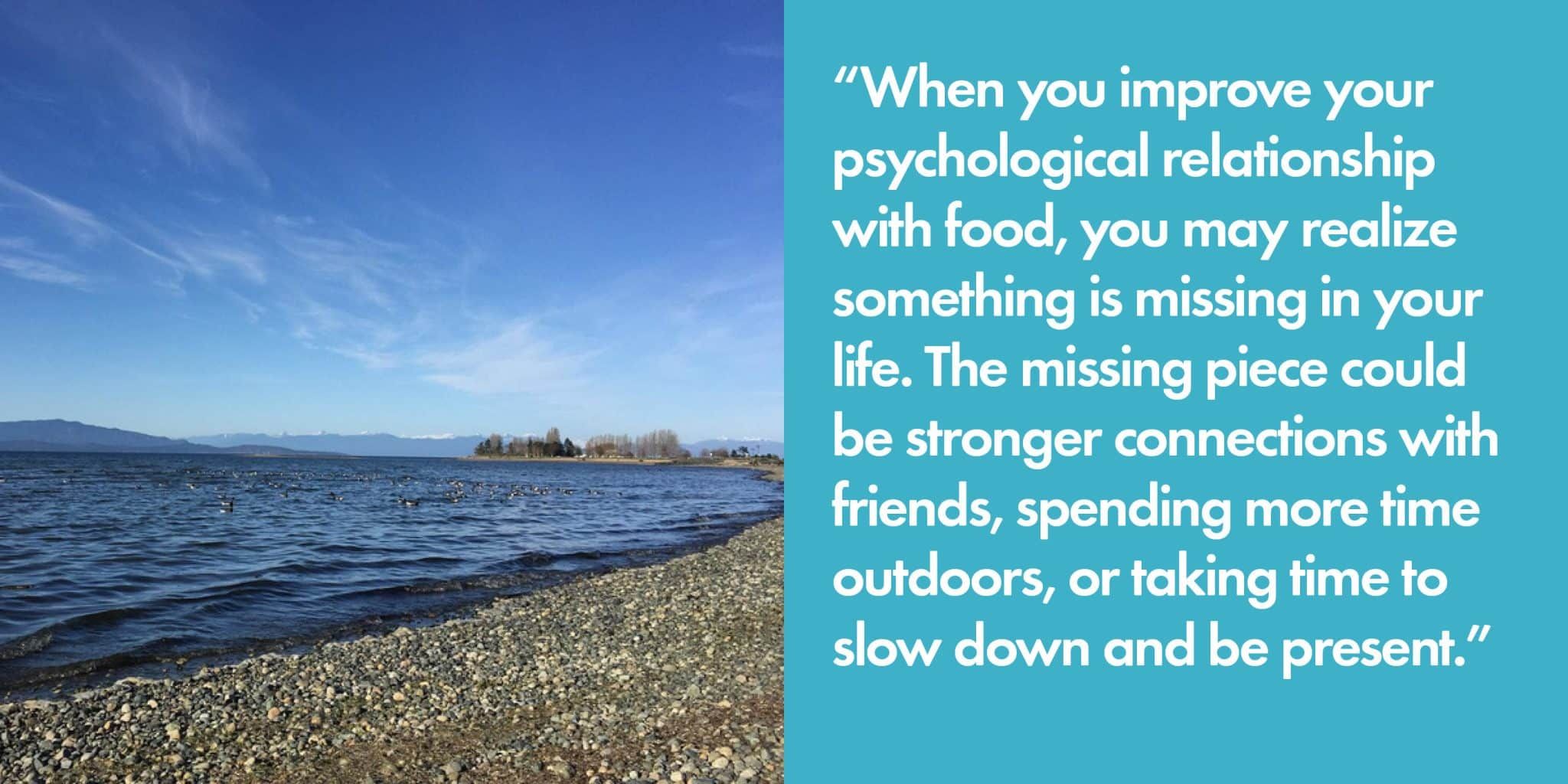
What can you do when your Whole30 makes you want to re-evaluate so much more than the food you eat? What can you do when it sends you on a path of discovery that touches the core of who you are as a person? Here are five ways to start a clarifying personal discovery process.
Write down your values
Values are those things that are most important to you. They’re the things you can’t live without, the reason you feel happy when you’re running around in the park with the kids, and the reason you feel upset when your boss doesn’t acknowledge your hard work. You can start to discover your values by thinking of a time when you felt like you were on top of the world. What made you feel that way that day? You can also think of a time where you were in a situation made you feel upset or negative. Which of your values were being ignored?
For example, when I’m not at work I like to keep obligations to a minimum, because having a sense of freedom in my life is important to me. I also know that health is a huge value of mine (it probably is for you too), so I spend my money on the best quality food I can afford, instead of a cable TV subscription. When you know what’s most important to you, you can start making decisions that put them at the top of your list of priorities.
Do what feels right
Start making decisions based on what feels right. The Whole30 has helped you tune into the foods that make you feel good, and to eliminate the ones that don’t agree with you. The Whole30 is constantly guiding you towards self-improvement, and you can extend the same thinking beyond your plate. So start listening to yourself. If you’re not feeling good about a friendship, do something about it. If too much overtime is wearing you down, speak to your boss. If you’re stuck inside behind a desk when you yearn to be in the woods, think about how you can start changing things. There is always a way.
If all logic points you in one direction, but you’d be taking that step half-heartedly, then don’t do it. I don’t care how much financial, logistical, or practical, sense it makes, because it won’t make you happy. If you don’t feel good about it, don’t do it. Follow how you feel, because logic doesn’t make for a fulfilling life.
Embrace the process
When you committed to the Whole30, you took it one day at a time. When you were on Day 3 you had no idea exactly how you’d feel on Day 18, and especially not on Day 30. You had to let go of the destination and embrace the process, one choice at a time.
When it comes to life after the Whole30, a world of possibilities stretch before you. The question is, where else will you apply the self-efficacy you discovered? It’s okay to not know what doors the Whole30 will open in your life, so long as you’re enjoying what you’re doing right now, in the moment. If you’re not, go back and look at your values, and follow what feels right to you.
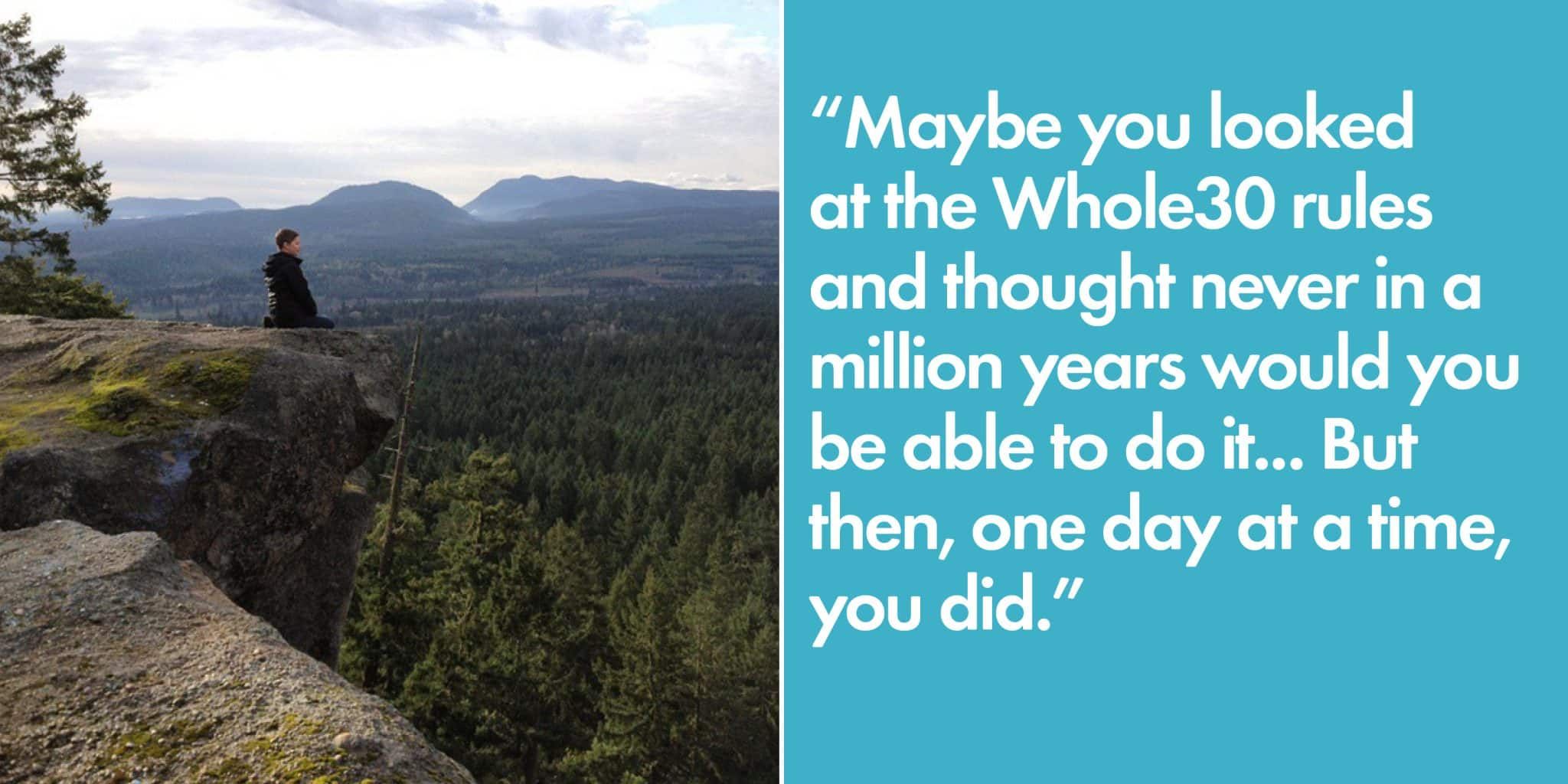
Stay adaptable
Maybe you looked at the Whole30 rules and thought never in a million years would you be able to do it. You honestly believed there was no way you could learn how to make your own mayo, get through your morning without your sweet and milky coffee, or unwind at night without that glass of wine. But then, one day at a time, you did.
You can apply the same attitude to your life as a whole by continuing to challenge yourself and staying adaptable, because every step you take offers a new viewpoint on life you couldn’t see before.
Rely on your newfound strength
Completing a Whole30 is a huge accomplishment, and is perhaps one of the biggest challenges you’ll ever taken on. You never thought you could give up so many things you loved for 30 days, no cheats, slips or excuses. But you did it! Whether your motivation was non-scale victories like improving your skin, achieving more restful sleep, or helping with a health condition like it was for me, you’ve discovered a newfound strength and determination you never knew you had. It’s likely this isn’t the only thing that has changed for you though.
I am a personal coach, brain tumor survivor, and someone who manages multiple sclerosis naturally, so I know first hand what it’s like to experience health issues and feel like an entirely different person afterward. My clients have survived a broad range of health crises, like depression, cancer, or autoimmunity. They all share the similar experience of finding it hard to step back into their old life, because it just doesn’t feel like enough for them anymore. The coaching work I do allows people to finally stop wondering if they’re making the best of their second chance, and turn it into the most exciting and meaningful time of their life.
Whatever you’ve conquered by doing the Whole30 you’ve become someone YOU can rely on.
What Else Can You Do?
Now I want to ask you, what other “impossible” things are you capable of achieving with your new found strength? What’s holding you back from doing them? Join the conversation on Instagram and Facebook, and let’s brainstorm some life changes together.
If you’re wondering if your health issues have changed more than your medical records, click here to download out my free guide: The Top 10 Signs Your Health Issues Have Changed You.

